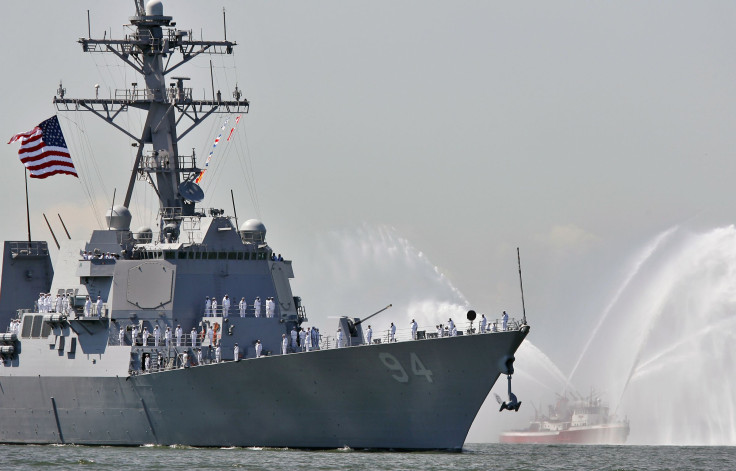US Missile Destroyer Intercepted By 4 Iranian Vessels At High Speed Near Strait of Hormuz

A U.S. warship was intercepted by four vessels of Iran's Islamic Revolutionary Guard Corps (IRGC) near the Strait of Hormuz on Tuesday, a U.S. defense official said Wednesday, claiming that the Iranian boats “harassed” the American ship in an incident that was “unsafe and unprofessional.”
According to the official, the IRGC vessels came within 300 yards of the USS Nitze, which as operating in international waters, and conducted “a high speed intercept and closing within a short distance of Nitze, despite repeated warnings.” The USS Nitze attempted to make contact with the Iranian vessels 12 times, but received no response. It also fired 10 flares toward the IRGC vessels, which still didn’t respond.
“The Iranian high rate of closure... created a dangerous, harassing situation that could have led to further escalation, including additional defensive measures by Nitze,” Reuters quoted the U.S. official as saying.
The Iranian vessels forced the USS Nitze to change course in order to avoid a potential collision, the official said, adding that the incident could have triggered a diplomatic protest if Washington had diplomatic relations with Tehran.
“These sorts of unsafe and unprofessional actions can lead to escalation and miscalculation, which may necessitate additional defensive measures,” Cmdr. Bill Urban, the public affairs officer for U.S. Naval Forces Central Command, told Stars and Stripes. “Commanding officers have an inherent obligation for self defense.”
Over the last year and a half, nearly 10 percent of Iran’s interactions with the U.S. Navy were deemed unsafe or unprofessional, Urban said, adding that all maritime nations should “act in a professional manner in accordance with international law.”
In January, two U.S. Navy patrol vessels inadvertently entered Iranian territorial waters in the Persian Gulf, followed by the arrests of 10 U.S. sailors by the IRGC. The crewmembers were released the next day after being held for about 15 hours.
A series of naval stand-offs between Iranian speedboats and U.S. warships in the Strait of Hormuz also occurred in December 2007 and January 2008. While the U.S. accused Iran of harassing and provoking its naval vessels, Iranian officials denied the allegations.
The Strait of Hormuz, which is responsible for supply flows of about one-fifth of the world’s oil, is one of the world's most strategically important choke points. It also provides the only sea passage from the Persian Gulf to the open ocean.
© Copyright IBTimes 2025. All rights reserved.






















